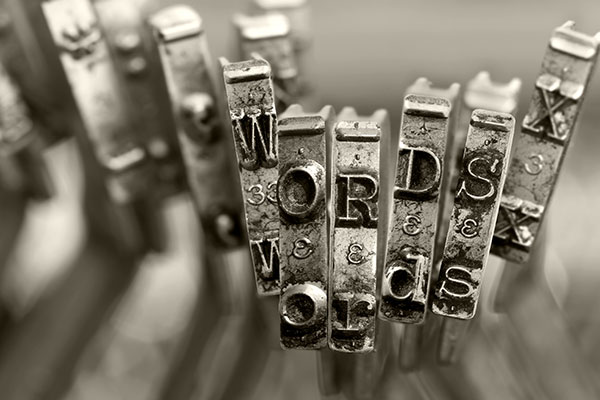 Years ago—so many that I was typing on a portable typewriter—I had a deadline to meet. It involved finishing a book, and then typing it and delivering it by a certain day. Soon.
Years ago—so many that I was typing on a portable typewriter—I had a deadline to meet. It involved finishing a book, and then typing it and delivering it by a certain day. Soon.
(I wish I could remember which book, but I can’t.)
I asked if I could use a friend’s out-of-town summer bungalow and took off a week from my librarian’s job. All permissions granted, hither I went and finished the draft of the book. Then, with only twenty-four hours till the deadline, I set my alarm for early the next day, got up, and commenced typing. Three hundred or so pages.
(This was in the day when writing was legitimately considered a form of physical labor.)
I began typing at six AM. At about three PM my hands were hurting so badly that I knew if I stopped, my fingers would lock, and I’d not be able to type anymore. At eight that night, or thereabouts, I finished the job.
(My aching hands could not type for a week. I was lucky not to get carpal tunnel syndrome.)
I got the manuscript in but that’s not the point of this tale. The truth is typing that way improved my text.
Surely you have noticed that with the almost universal usage of computers books have gotten longer, and bigger. That’s because when you typed on a manual typewriter—see above—you had an enormous incentive to cut your text. I know I did.
And this is the moral of today’s sermon: These days you can almost always make your work shorter, tighter. Computers make writing sloppy. Bloated. Computers have high-calorie counts.
Now I admit I have a fondness for tight writing. Hammett, Hemingway, Simenon, and Chandler, were my mentors. Yes, noir fiction. Not the stories as such, but the writing. It was not the dead bodies I liked but the lack of dead words. Loved it. Still do.
(Read my not-really-memoir, Catch You Later, Traitor .)
This all comes to mind because the other day I was trying to decide why I didn’t like what I was writing. I decided that the writing was bad. Bad in what way? Prolix. Wordy. Excessive verbiage. Longwinded. Rambling.
(I’m pleased that there are so many words for overwriting.)
So, I did what I so often do: I went through the text and tried to cut every unnecessary word/sentence/paragraph. In the past, when I have written a big—forty thousand word–book, I arbitrarily set a goal of cutting five thousand words. Or something. Maybe more.
(Computers, as if to apologize for the excesses they promote, have word counters! Sort of a built-in word-watcher plan.)
When you rewrite, keep in mind the well-known phrase made popular by designer and architect Ludwig Mies van der Rohe: “Less is more.” Far from Shakespeare’s “the unkindest cut of all,” making your text clean, lean, and tight is the kindest cut of all.
Your readers will thank you.
(Maybe your will hands, too.)
4 thoughts on ““Less is more.””
So interesting that computers contribute to overwriting. Now what contributes to the overuse of
Jumping back & forth in time? Hardly any linear stories anymore—maybe I need to read more children’s lit
@Cathy Bonnell, I agree there’s an overuse of time jumping. It’s rarely done effectively, and I find myself as a reader skipping ahead to keep the story linear, then going back to read the “second” story. Sometimes the same goes for two narrators (in different times or the same).
It’s cool to know you’re so proud of that book and you really nailed the shot heard ’round the world. I had all kinds of baseball history books and VHS’s as a kid. I think Ken Burns even did a history of baseball; it was 8 tapes and I watched all of them!! Look at me getting all verbose and off topic! But seriously, that girl was so cute with her little tagline of Catch You Later Traitor. I’ll never forget her and it’s much more fun than Season of Suspicion. God, that was a great book. My daughter and I loved it so much. Speaking of traitor books and since I’m on a computer and I’m already too long for a comment, I might as well keep going. You really nailed it with The Traitor’s Gate, too. Your narrator just killed it with the father’s acting, “Your finest room, of course.” I love you so much and thank you for all the laughter and warm memories you have given me with my daughter. I could never repay you, but maybe I’ll cut down on words in the future and just say thank you 🙂
Competitive typing dates to an era when typewriter manufacturers held competitions at places like Madison Square Garden. The events drew thousands, but popularity waned after the first half of the 20th century.
In 2008, though, the TypeRacer website went up and drew a devoted community. Now, there are multiple websites where users log scores over 200 words per minute and an Ultimate Typing Championship. It’s a “grass-roots movement,” one said. “It seems like this special thing that some people want to keep secret and special and tight-knit.”